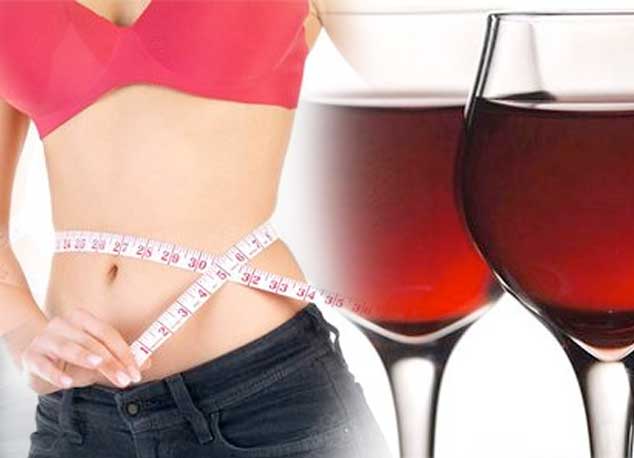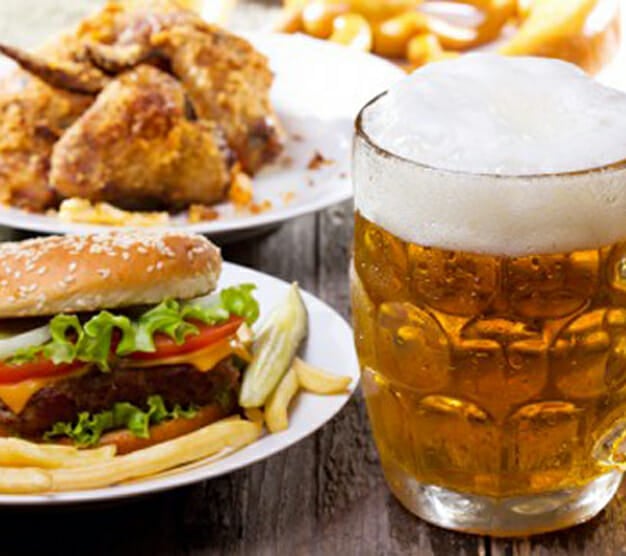As a certified personal trainer, I've seen firsthand how wine, one of the most popular alcoholic beverages worldwide, can play a role in a balanced lifestyle.
Many of my clients have been surprised to learn that wine, often perceived as just a normal drink, can actually assist in various health aspects, including fat burning, when consumed in moderation.
Wine is made from either fermented grapes or berries. Resveratrol, one of the polyphenols found in wine converts excessive fat in the body into calories and burns them.
Therefore, people should stop having a myth that drinking wine will make someone fat. On the contrary, it can help you in your weight loss journey when combined with regular workout and proper diet.
Quick Summary
- Moderate wine consumption, particularly red wine, may aid in weight loss due to the presence of resveratrol, a compound that helps convert fat into calories.
- While wine can contribute to weight management, it's crucial to drink it in moderation, as excessive consumption can lead to weight gain.
- Studies, such as one from Washington State University, have shown that resveratrol in wine can enhance fat oxidation, aiding in weight loss efforts.
- As a fitness enthusiast, I believe that while wine can be part of a balanced diet, it should not be relied upon as a primary method for weight loss.
What The 2 Studies Showed...

For decades, grandparents and even doctors and researchers have made some wild claims about wine and its health benefits: it lowers the risk of heart disease, it may have anticancer properties, and it can even increase your sex drive.
As it turns out, a lot of these claims have proof to back them up, even though researchers still need more time and studies to prove it beyond a doubt.
So naturally, when we heard that wine could help a person shed excess pounds, our ears perked up.
Study 1: Wine And Weight Loss
The claim that wine will help you shed unwanted pounds comes from a 2015 study at Washington State University. According to the study, berries and grapes convert excess white fat into calorie-burning fat thanks to a polyphenol called reservatrol [1].
Animal scientists found that reservatrol literally increased gene expression to enhance oxidation of fats, helping the body burn fat instead of store it. This process helps prevent obesity and even keeps your metabolism in check. Reservatrol is in wine.
What’s more?
Study 2: Drinking Wine Before Bed

Another study found that drinking wine just before bed could help curb your appetite and in that sense help you lose weight by lowering your late-night caloric intake.
Here’s the problem: the study looked at bees’ eating habits, not humans’.
The problems with the notion that wine could help you shed pounds don’t end there, though. We hate to say it, but we’ve got some bad news for you.
It’s true that the WSU study shows resveratrol and polyphenols in general seem to aid in weight loss.
However, one more study found on the PubMed website that monitored the effects of moderate consumption of white wine on weight loss in overweight and obese subjects found that all subjects achieved significant body weight reduction [2].
Does Wine Make You Fat?

The short answer: No.
If you were looking for another excuse to drink more of this alcoholic beverage, slimming down isn’t one of them. One serving of beer has about 150 calories, wine too. While liquors like vodka and whiskey have 100.
Chances are, you won’t stop at one glass, and liquid calories can be real diet-killers. But a glass of milk has a fair amount of calories, too, so pick your battles, right?
Then again, though, a lot of studies show that this drink in moderation is good for your heart health. The potential for anticancer properties and upping your libido isn’t so bad, either. So go ahead – have a glass or two. Just don’t expect it to help you slim down.
Are you a regular wine drinker or a total teetotaler? What’s your opinion when it comes to wine and losing weight?
Truth be told, from what we can tell, wine doesn’t have any more impact on the waistline than any other alcoholic drink. In fact, red wine might actually be recommended for beating back the belly fat.
- Emily Bell, Vine Pair
Why People Get Fat From Alcohol
Well, you don’t have to be a researcher to notice that people who enjoy their drink tend to be heavier and have health issues.
But why is that? There are actually quite a few reasons why alcohol is bad for weight loss:
- A glass of red wine or beer is around 150 calories. The calorie content of mixed cocktails about 300.
- Alcohol breaks down into acetate, which the body prioritizes in the fuel food chain. Meaning it ignores the calories you eat at lunch. They then turn into fat and join the growing spare tire.
- Even moderate drinking stops the lipid oxidation process making it even tougher than normal for the body to burn fat and calories.
- Middle-aged and older women in particular suffer a more pronounced slowdown in metabolism than men, allowing body fat to accumulate easier.
Why Does Drinking Make You Hungry?

People have long claimed that alcohol consumption makes them hungry and it’s eating extra calories, not drinking, that’s responsible for their weight gain.
Well, now there’s proof that they may be at least partly right.
A recent British study concluded that alcohol stimulates the part of the brain that controls food cravings.
So the next time you have a few and feel the need violate your diet you’ll know it’s the alcohol that’s undermining your ability to lose weight.
How to Maintain Health While Drinking Wine

In my role as a personal trainer, I often advise clients on diet, and while many diets recommend cutting out alcohol, including beer and wine, I've found that moderate wine consumption doesn't necessarily hinder fat loss. It's about balance and understanding that enjoying a glass of wine can coexist with a healthy lifestyle.
Here are 4 ways both men and women of any age can stay healthy while drinking wine.
- For good health don’t drink wine before eating - As we’ve already seen drinking alcohol can increase your appetite. So rule 1 is not to drink a glass of wine before meals every day. Also, drink dry red wine. It’s higher in antioxidants.
- Use wine as a reward - You want your metabolism to be up when you drink wine so that it can process calories quickly and you don’t gain weight. So go for a walk during the day to elevate your metabolism and then have your red wine as a reward.
- Don’t drink right before bed - Do you know how the Sumo wrestlers get so fat? They eat lots of calories then go to sleep. This maximizes weight gain. If you drink wine before bed you’re living the sumo lifestyle. So will wine make you fat? If you drink right before bed it just might.
- Buy more expensive wine - This has nothing to do with eating food in the morning or counting calories but you’ll find it works. If you buy more expensive red wine you’ll be naturally inclined to drink it slower, over a longer period of time.
Studies have also shown that drinking red wine can actually improve health by stabilizing blood sugar. So take the above tips to heart and enjoy your wine while staying healthy.
FAQs
Which Varieties of Red Wine Are Most Effective for Weight Loss?
Certain varieties of red wine, like Pinot Noir and Merlot, are believed to have higher levels of resveratrol, a compound linked to weight loss. However, it's important to note that moderation is key, as all wines contain calories and sugars.
How Does Wine Compare to Other Alcoholic Beverages in Terms of Weight Loss?
Wine, particularly red wine, tends to have fewer calories and more beneficial compounds like antioxidants compared to many beers and spirits. However, the overall impact on weight loss also depends on drinking patterns and individual metabolism.
What Are the Long-Term Effects of Wine Consumption on Weight Management?
Moderate wine consumption can be part of a healthy lifestyle and may aid in long-term weight management, especially when combined with a balanced diet. However, excessive drinking can lead to weight gain and other health issues.
Does the Time of Day and Frequency of Wine Consumption Affect Weight Loss?
Drinking wine in moderation with meals, rather than alone or late at night, is generally considered more beneficial for weight management. The key is to integrate wine consumption into a balanced diet without overindulging.
Are There Any Real-Life Success Stories of Weight Loss Involving Wine Consumption?
There are anecdotal reports of individuals successfully incorporating moderate wine consumption into their weight loss journey, often as part of a broader lifestyle change. These stories highlight the importance of balance and moderation in diet and alcohol consumption.
References:
- https://archive.news.wsu.edu/press-release/2015/06/18/wsu-scientists-turn-white-fat-into-obesity-fighting-beige-fat/
- https://pubmed.ncbi.nlm.nih.gov/15356671/
About The Author
You May Also Like







I think those who believe that wine causes weight gain (and not weight loss) are those who drink too much of it. Just a glass of wine wouldn’t hurt I guess.